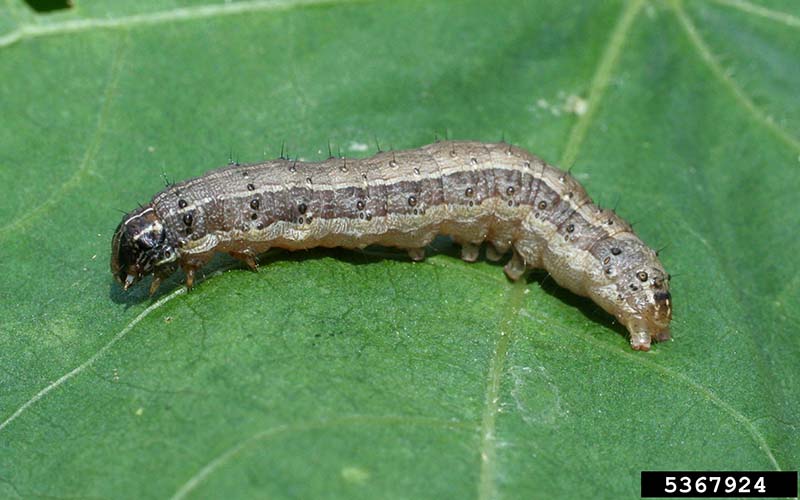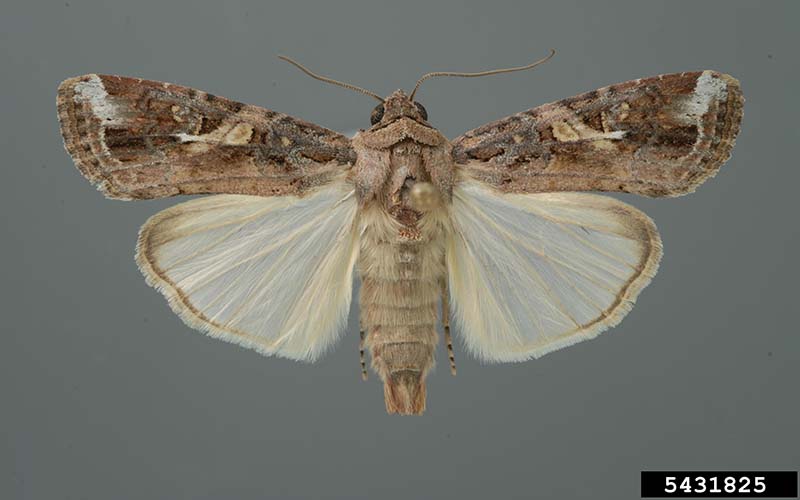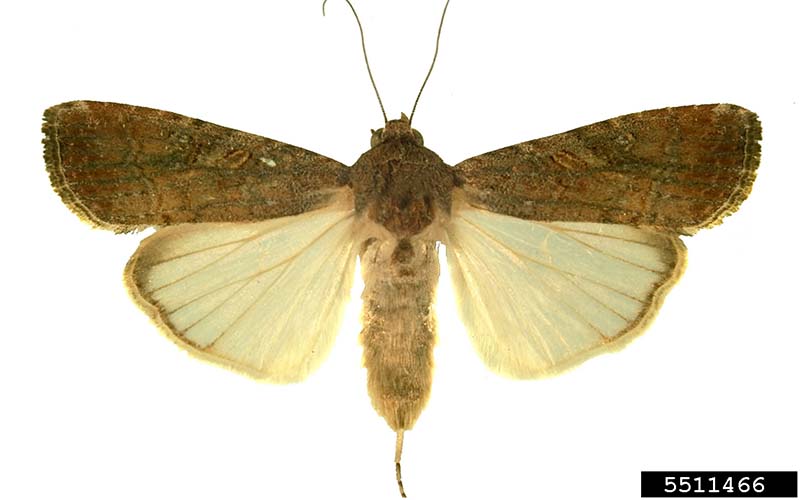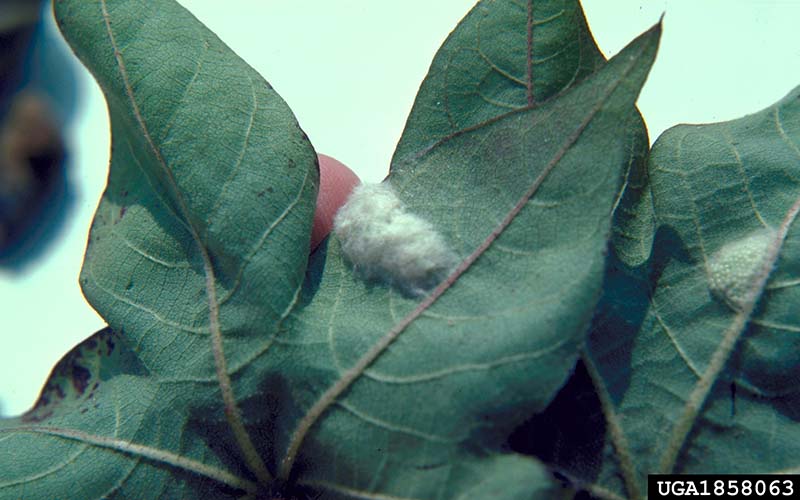Fall armyworm
Fall armyworm is a caterpillar pest that feeds on a wide range of plants, including:
- sugarcane
- millet
- rice
- maize
- sorghum
- cotton
- wheat
- vegetables
- fruit crops.
There have been several confirmed locations in the Northern Territory (NT).
Appearance
Larvae
Fall armyworm larvae are green or brown with black lines along the body and around the spiracles. They also have numerous black hairs.
There is also a green form of the larva which has pale spots.
Image: Fall armyworm larva on cotton ©Russ Ottens/University of Georgia/Bugwood.org CC BY 3.0 US.
Pupae
Fall armyworm pupae are approximately between 13mm to 17mm in length, reddish-brown and shiny.
They are usually found in the soil under plants or fallen leaves.
Adult
Adult male moths have mottled light brown or grey forewings with a cream-coloured spot near the centre of the wing and on the tip. The male wingspan is between 32mm and 40mm.
Adult female moths have greyish-brown forewings with markings of grey and brown but do not have the distinctive markings of the male. The female wingspan is between 32mm and 40mm.
The hindwings of both males and females are pearlescent-white in colour with a brown border.
Image: Adult male (left), adult female (right) - ©Lyle J. Buss/University of Florida/Bugwood.org CC BY 3.0 US.
Life cycle
Adult females lay eggs onto the under surface of the lower leaves.
Eggs are:
- circular
- 4mm in diameter
- cream in colour when first laid and
- turn light brown prior to hatching.
Eggs are laid in single rows of between 100 and 200 and covered with ‘furry’ scales.
Adult female moths can lay up to 2,000 eggs in a lifetime.
On hatching, the larvae are green with black longitudinal lines and spots.
Image: Fall armyworm egg mass on cotton ©Ronald Smith/Auburn University/Bugwood.org CC BY 3.0 US.
Adult moths are nocturnal and are most active during warm, humid evenings.
Adult moths can live for up to 21 days depending on temperature and climate.
How they spread
Besides their reproductive capacity, fall armyworm adults are capable of flying long distances of up to 100km in a night.
They can also spread by movement of infested produce by air, road or sea.
Damage
Larvae are nocturnal. During the day, they are hidden in the foliage or at the base of plants.
At night, they chew on leaves and may also damage flowers and developing seed heads.
Larvae prefer to feed on grasses like sorghum and corn but will also feed on a wide variety of other plants including apple, papaya, cotton, millet and peanut.
As they mature, they begin to chew holes and consume the leaves from the edges inwards.
Mature larvae may give the leaves of a plant a ragged appearance. Excrement (frass) left by larvae will be present.
Larvae feed on the growing tips and fruiting bodies. When food is scarce, mature larvae will move in large numbers like an ‘army’ in search of food.
Image: Larvae damage sorghum ©Clemson University/USDA Cooperative Extension Slide Series/Bugwood.org CC BY 3.0 US.
Control measures
Control measures are already available for other caterpillars on crops in the NT.
These include Integrated pest management techniques based on cultural, biological and chemical control. These should also work on fall armyworm.
Chemicals
All pesticides should be used in accordance with label instructions and the NT Control of Use legislation.
For more information, read the chemicals fact sheet PDF (186.8 KB)
More information
Fact sheets
To find out more about fall armyworm, get the following fact sheets:
- fall armyworm PDF (544.3 KB)
- fall armyworm DOCX (4.2 MB)
- chemicals PDF (186.8 KB)
- chemicals DOCX (70.7 KB)
- armyworm PDF (990.4 KB)
- armyworm DOCX (2.1 MB).
Webinar
You can also watch a webinar below about fall armyworm, as part of NT Farmers' series with the Department of Agriculture and Fisheries.
Contact
To find out about control measures, call 08 8999 2258 or email insectinfo@nt.gov.au.
To get advice on pesticide use, call 08 8999 2344 or email chemicals@nt.gov.au.
Give feedback about this page.
Share this page:
URL copied!




